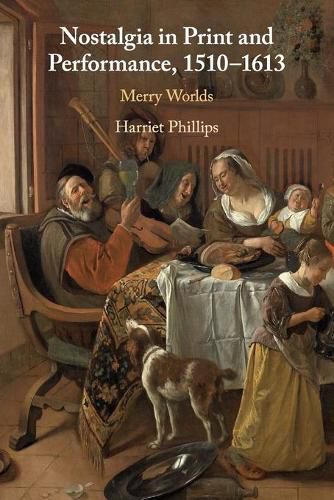Readings Newsletter
Become a Readings Member to make your shopping experience even easier.
Sign in or sign up for free!
You’re not far away from qualifying for FREE standard shipping within Australia
You’ve qualified for FREE standard shipping within Australia
The cart is loading…






For many people in early modern England the Reformation turned the past into another country: the ‘merry world’. Nostalgia for this imaginary time, both widespread and widely contested, was commodified by a burgeoning entertainment industry. This book offers a new perspective on the making of ‘Merry England’, arguing that it was driven both by the desires of audiences and the marketing strategies of writers, publishers and playing companies. Nostalgia in Print and Performance juxtaposes plays with ballads and pamphlets, just as they were experienced by their first consumers. It argues that these commercial fictions played a central role in promoting and shaping nostalgia. At the same time, the fantasy of the merry world offered a powerfully affective language for conceptualising longing. For playwrights like Shakespeare and others writing for the commercial stage, it became a way to think through the dynamics of audience desire and the aesthetics of repetition.
$9.00 standard shipping within Australia
FREE standard shipping within Australia for orders over $100.00
Express & International shipping calculated at checkout
For many people in early modern England the Reformation turned the past into another country: the ‘merry world’. Nostalgia for this imaginary time, both widespread and widely contested, was commodified by a burgeoning entertainment industry. This book offers a new perspective on the making of ‘Merry England’, arguing that it was driven both by the desires of audiences and the marketing strategies of writers, publishers and playing companies. Nostalgia in Print and Performance juxtaposes plays with ballads and pamphlets, just as they were experienced by their first consumers. It argues that these commercial fictions played a central role in promoting and shaping nostalgia. At the same time, the fantasy of the merry world offered a powerfully affective language for conceptualising longing. For playwrights like Shakespeare and others writing for the commercial stage, it became a way to think through the dynamics of audience desire and the aesthetics of repetition.